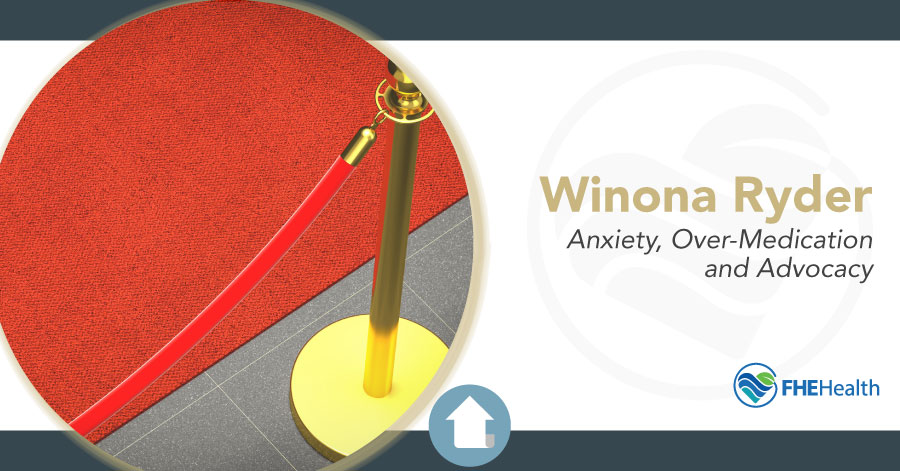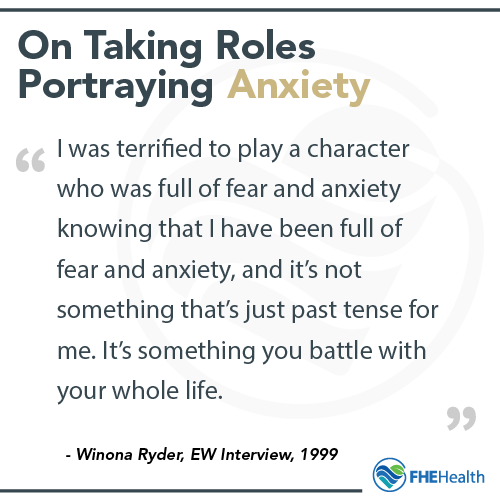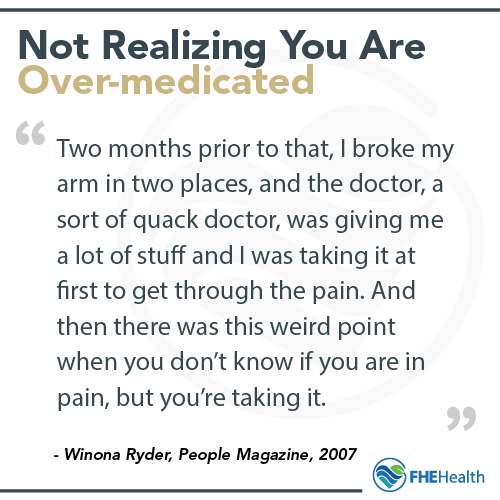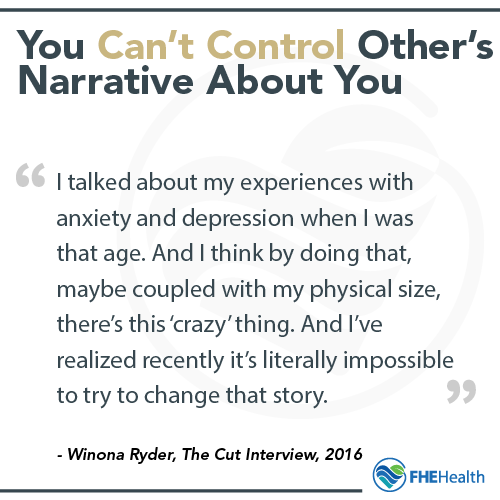
In 2003, director Woody Allen wanted to cast Winona Ryder, a well-known actress, in his new movie, “Melinda and Melinda.” He thought she would be the perfect fit for the role, but, unfortunately, the insurance company, which would have provided bonding for the production to minimize financial loss, wouldn’t approve Ryder.
How can a star, who was so well-known in the 1990s and early 2000s, find herself unable to secure insurance to work on a film? Her reputation made her too much of a risk for the bonding company and limited her ability to work in the industry. Much of this can be attributed to earlier incidents that painted her as a person with mental health problems.
Taking a Look Back at Early Stardom
 Winona Ryder is an American actress who received a Golden Globe Award in 1994 for her role in “The Age of Innocence” as well as other recognitions for her work. Perhaps best-known for her early successes in “Lucas” in 1986 and “Beetlejuice” in 1988, she worked on many films in vastly different roles.
Winona Ryder is an American actress who received a Golden Globe Award in 1994 for her role in “The Age of Innocence” as well as other recognitions for her work. Perhaps best-known for her early successes in “Lucas” in 1986 and “Beetlejuice” in 1988, she worked on many films in vastly different roles.
In 2001, her struggles with anxiety and depression took the spotlight. Some people may remember her incident with shoplifting, which was put center stage in the tabloids. How could Winona Ryder steal?
A component of this comes from her role in “Girl, Interrupted,” which she said felt too real. Ryder said, “I was terrified to play a character who was full of fear and anxiety knowing that I have been full of fear and anxiety, and it’s not something that’s just past tense for me. It’s something you battle with your whole life.”
While many would not recognize anxiety in her, she stated, “You have these trunks inside yourself of fears and anxieties, and when you’re on a plane or experience a loss, they kind of open up and this fear pours through you. You try to shove it back in the trunk, and you can’t. And for the movie, I went back into these trunks, these dark places I didn’t want to go back to.”
For Ryder, much of her anxiety and depression came from the journey to stardom. She says of that overwhelming experience, “I’m a very lucky person and very privileged, but I also have the same pressures as any human being.”
How Winona Ryder’s Anxiety Led to Shoplifting
 After being caught shoplifting in Beverly Hills, accused of stealing $5,500 worth of clothing from a department store, she went into the courtroom to defend herself. She explained some of why this happened later in an interview with People magazine.
After being caught shoplifting in Beverly Hills, accused of stealing $5,500 worth of clothing from a department store, she went into the courtroom to defend herself. She explained some of why this happened later in an interview with People magazine.
She says that, during the incident, she was clinically depressed and taking medications to help her with pain. She also says, “Two months prior to that, I broke my arm in two places, and the doctor, a sort of quack doctor, was giving me a lot of stuff and I was taking it at first to get through the pain. And then there was this weird point when you don’t know if you are in pain, but you’re taking it.”
She was prescribed and taking oxycodone, which created a state of confusion for the star. After being arrested, she noted that it was a blessing because it helped her stop using painkillers.
Later, the doctor who prescribed those medications, basically overmedicating Ryder, had his medical license revoked, according to the Associated Press, for catering “to the demands of wealthy and/or famous drug-seekers for prescription narcotics which would otherwise have to be obtained on the street.”
She was able to seek professional help and avoided some legal outcomes as a result. However, this isn’t what happens for many people.
Why Celebrities Speaking Out Is So Important
Ryder is not necessarily a vocal advocate for mental health in that she hasn’t spoken publicly about it much as others. However, she has been candid in several interviews and her story can be inspiring for many people dealing with a similar situation.
In an EW.com article, from 1999, she says just how lucky she was to be in her position and to experience the same feelings others had. She says, ”Since I’ve talked about my anxiety, I’ve gotten a really good response. Young women were grateful to learn that it happens to everybody, even to people they consider perfect people with perfect lives.”
In reality, mental health problems impact the lives of millions of people. Feelings of anxiety and depression can change the lives of people of all ages and backgrounds and cripple their ability to function normally.
Speaking to Diane Sawyer on Anxiety
 In 1999, Diane Sawyer interviewed Ryder. In the interview, Ryder describes how ordinary the feelings of depression and loneliness are to her.
In 1999, Diane Sawyer interviewed Ryder. In the interview, Ryder describes how ordinary the feelings of depression and loneliness are to her.
In a recent interview with The Cut, she says of the Sawyer interview, “I talked about my experiences with anxiety and depression when I was that age. And I think by doing that, maybe coupled with my physical size, there’s this ‘crazy’ thing. And I’ve realized recently it’s literally impossible to try to change that story.”
She also notes, “One of my worst fears is being a self-indulgent person.” She states that being a person with wealth and privilege made her feel as though she shouldn’t have such problems. But money and fame don’t necessarily translate into happiness.
She says, “I don’t regret opening up about what I went through [with depression], because, it sounds really cliché, but I have had women come up to me and say, ‘It meant so much to me.’ It means so much when you realize that someone was having a really hard time and feeling shame and was trying to hide this whole thing… And even the whole, like, sensitive, fragile thing. I do have those qualities, and I just don’t think there’s anything wrong with them. There were times when I let it feel too overwhelming and almost, like, shamed, but I had to just get over that.”
It’s not uncommon for people to face depression and anxiety, and reaching out for help is the most important step you can take. Having a second opinion on the medication you are receiving and working with a therapist of clinicians you trust is key to living with depression and anxiety.






